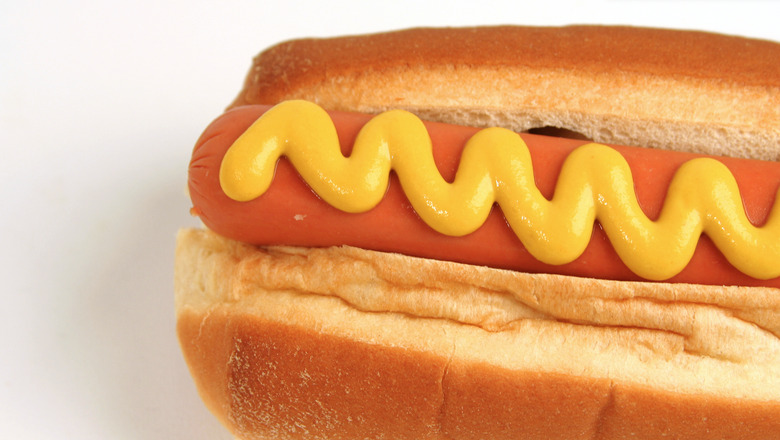Your Summer Cookout Hot Dogs Have A Lot More Gross Ingredients Than You Think
No summer cookout is complete without a hot dog or two. But while burgers, chicken, and steaks can be depended on to only have one ingredient — beef or chicken — hot dog ingredient listings can run the gamut from mostly legible to completely gross-sounding. We suggest that you give the ingredients listing a thorough read before you buy your next batch of hot dogs, because some contain such low-quality ingredients that we wouldn't even feed them to our dogs.
As a baseline for good-quality hot dogs, take a look at what Applegate produces: These contain only grass-fed beef, water, and seasonings. Most other hot dogs, because they're cured, contain sodium nitrate or nitrite, which helps kill pathogens and imparts that rosy color. When you buy a pack of hot dogs, ones with ingredients like these should be the only ones you buy. Because it's all downhill from here.
We're not going to name names, but here are some ingredients in one popular hot dog brand: the dreaded mechanically separated chicken, corn syrup, potassium lactate, sodium diacetate, and sodium erythorbate. And here's another leading brand: mechanically separated chicken, mechanically separated turkey, and cultured dextrose. And one last one: mechanically separated chicken, dextrose, modified corn starch, beef, corn syrup, sodium phosphate, potassium lactate, potassium acetate, sodium diacetate, and sodium erythorbate.
If you're wondering what all these ingredients are, we suggest you check out this handy guide from the National Hot Dog and Sausage Council, which breaks them all down one by one, and is even searchable.
So to repeat: You should probably read the ingredients listing before you buy your next package of hot dogs, and check out the healthiest and unhealthiest store-bought hot dogs.
